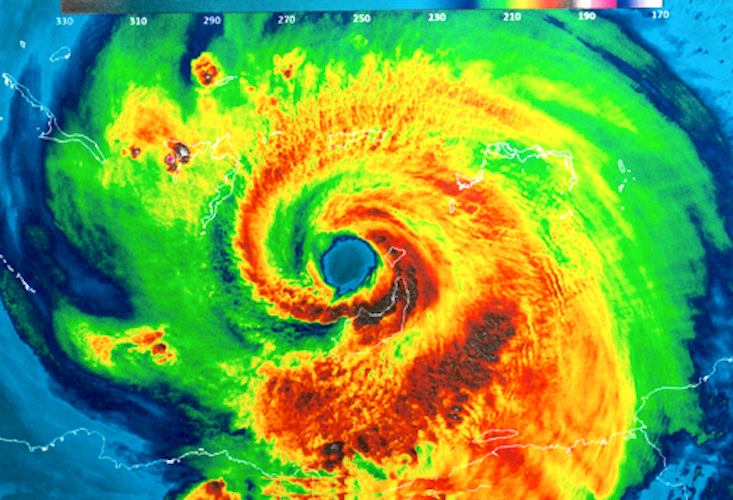Get Ahead of Georgia Storms with Our Tips

Following the floods in Texas earlier this month, storm prep is on many of our minds in Georgia. With severe weather, it is vital to prepare ahead of time so we can act fast. In Georgia, we have two different geographic areas to consider for severe storms and flooding: mountain areas and coastal plain areas. Let’s go over some Georgia storm information and preparation tips including how to handle your natural gas service in Georgia.
Storm Prep for Georgia Mountains
The mountain region in northern Georgia faces risks of flooding due to heavy rain during storms. In fact, in September of 2009, this area saw extreme flooding that resulted in 10 casualties. According to NOAA, primary types of storm damage in the area are heavy winds, hail, tornadoes, and then floods.
Severe floods occur due to heavy amounts of rainfall. In 2009, we saw seven days of heavy rainfall with up to 20 inches of rain in one 24-hour period. NOAA lists four significant flooding events in this region of Georgia in the past 140 years. However, less severe floods happen each year and cause millions of dollars of damage.
During storms, listen for news on the amount of rainfall. Specifically, four inches of rain in 24 hours is considered extreme. Furthermore, just 1-2 inches in a short period can cause a flash flood. Additionally, be aware that heavy rain upstream from you can cause flooding in your area in time.
Storm Prep for Coastal Areas of Georgia
In coastal areas of Georgia, storm surges and flooding are the primary storm dangers due to hurricanes and tropical storms. Storm surges occur when strong winds build tides higher than normal. In 1893, Savannah saw a storm surge of 16 feet during a hurricane that killed 2,000. Flooding along the coast occurs during a surge but also results further inland from heavy rains. According to Axios, in Hurricane Helene in 2023 caused over $5.5B in damage to Georgia. Last year, Hurricane Debby hit the coast with 10 inches of rain that caused flooding. Rising sea levels also put coastal plains at higher risk of floods.
It’s also worth noting that hurricanes threaten natural gas supplies. As flooding sweeps through an area, natural gas companies can be left with exposed and damaged pipelines. Significant damage can shut down pipelines and even impact your natural gas rates.
For those living in the coastal plains area, closely follow developments during hurricane season. Windspeed, storm intensity, and path of the storm are key to determining the severity of the weather Georgians might experience. For example, Helene was a category 4 storm at landfall with winds at 140 mph. And again, rainfall over 4 inches in 24 hours is extreme.
What to Do Under Threat of Flood
Prepare for all types of floods before severe weather hits these two checklists.
How to prepare for flooding
- Use the Georgia Flood MAP to see flood risks for your specific area.
- Make and practice escape plans.
- Have non-perishable food and bottled water on-hand if you plan to shelter in place.
How to Check for Natural Gas Safety After a Flood
- Call your natural gas utility, Atlanta Gas Light, if you smell natural gas in your home.
- If your home does flood, do not use natural gas appliances until you have an inspection.
- Severe storms are messy. Check chimneys, flue, and vents for blockages you can clear.
- Inspect your property for major damage that could have exposed gas pipelines such as up-rooted tree falls, severe soil wash-outs.
For more safety and general information about your natural gas in Georgia, visit us at https://www.georgiagassavings.com.

